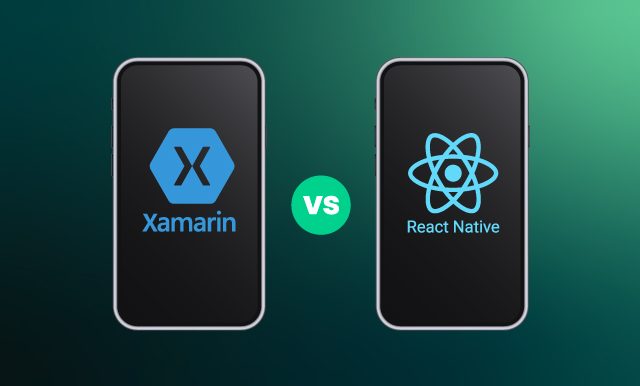Although nowadays there are a plethora of programming languages available on the market, selecting the proper one for your project may be tough and arguable due to the traction they are gaining. In this article, we try to debunk the myths about PHP death and explain why this language is a relic and does not have yet to be spurned. Rumors around PHP’s rooting out are unjustified since figures state the opposite. Even if the number of websites written with PHP is declining, it does not mean it isn’t still being used.
Thanks to its lightweight deployment and speedy development-to-release-cycle, PHP is still one of the favorite languages among developers. Let’s dive in to see the reasons why PHP is still relevant for web development.
Is PHP on the Verge of Extinction?
At the moment of this article’s writing, the server-side language of 77,4% of websites is PHP, according to the W3Techs report. So how can this language be dead if a high percentage of websites still use PHP? Take, for example, WordPress, the leading content management platform whose market share constitutes 43% of all the websites on the Internet. All of them are written with PHP. And the list can be supplemented with many other world-known players on the market as Wikipedia, MailChimp, Spotify, Slack, etc.
Touching history, PHP was developed back in 1994 by Rasmus Lerdorf, originally named Personal Home Page Tools. The evolution of PHP has gradually acquired new improvements in modules and architecture, increasing its usage manifold. The latest version of PHP 8.0 was released in November 2020, empowered by such fully-fledged frameworks as Symphony and Laravel, making it a step toward huge performance and speed.
With the prevailing tendency to use the latest languages and frameworks, PHP relevance is somewhat trapping off. But we need to note that PHP is the veteran language, the origin of which reaches the year when the Internet just started to do wonders.
However, from the point of view of historical progression and considering the emergence of newer technologies (such as JavaScript, Angular, React, and Python), PHP is keeping up its sturdy position in the market among server-side programming languages.
What Makes PHP So Popular and Relevant? Benefits
According to the majority of developers’ opinions, PHP is a mature language allowing experienced programmers to use elegant frameworks, which enable solving real-business problems in a flexible, maintainable, and productive manner. So what makes this language so special and why is it required by developers of different levels?
Versatile opportunities: build customized projects
Being a general-purpose server-side language, PHP is geared toward the variable configuration of web-based systems and cross-platform web development. Supporting a wide range of databases (MySQL, MongoDB, Oracle), PHP allows for building any type of website backed by a variety of plugins and modules ensuring specific functionalities and features. With various mature frameworks such as Laravel, Symphony, Zend, Yii2, Code Igniter, etc., PHP is capable to implement complex customized projects. By combining appropriate libraries with different applications, a developer can do pretty much anything at the enterprise level.
As quick as a flash
In comparison with other programming languages, PHP has a faster rate of loading thanks to own memory it utilizes. When comparing PHP 5.6 and PHP 7.3, for instance, the newer version demonstrates a 2-3X increase in the number of requests per second. Furthermore, there were some scenarios, where PHP outperformed Python and Ruby in terms of data processing time. Possessing such a strongest point as speedy script performance, developers can code in PHP quickly without the need to use sophisticated compilers and converters for program execution.
A large pool of specialists
Well-elaborated documentation, available references, and the diversity of frameworks and libraries have endeared PHP to millions of users worldwide. Being a language that is quite easy to learn, PHP facilitates easy onboarding and digging into the PHP world for novice developers. Moreover, considering the fact that 6 million developers are available on the market, you can be certain that the hiring process will take less time in comparison with other languages. With such an extensive pool of experts, business owners can find exactly those developers whom they require for their specific projects.
Open-source and cost-efficiency
Licensed as an open-source programming language, PHP has gained the loyalty of a large community of developers, which means permanent support, enhancements, and the pursuit of gaining new components and frameworks. So once you step on this path of acquiring PHP skills, you can build, download, and get access to all the frameworks with zero cost.
What Projects Can PHP Be Used For?
PHP goes far beyond back-end processes since it offers the implementation of diverse tasks such as receiving data from forms, creating sessions, validating user permissions, sending and receiving cookies, making redirections, integrating with mobile, generating dynamic page content, etc.
Summarising the abovementioned information, we would like to outline some of the benefits and how they are leveraged into web-based projects. PHP is a robust instrument that can solve different problems for different types of software and for businesses of all sizes. High speed of data processing, light syntax, quick onboarding, and easy integration with other technologies make this language universal and attractive for different-size projects.
In terms of time efficiency, PHP is a perfect tool since it does not require additional system resources, which prevents the app from a low loading time. Therefore, complex commercial applications can significantly benefit from PHP as this language facilitates processing time and high performance accordingly. In turn, this factor is impactful for SEO optimization and marketing efforts fostering the project release to the market.
PHP is also widely used for small projects with a limited budget and scope. The easy accessibility to a number of frameworks allows developers to save up time and money while solving the problems of the client.
Whether your client needs a corporate website, for example, with integrated Google map, or a simple web store – PHP may turn out to be a great option since in both cases it has appropriate solutions: integration capabilities and frameworks. For example, supporting databases like Oracle, MySQL, and MS Access and PHP frameworks like CakePHP and Codelgniter, PHP is capable to build a lot of popular eCommerce platforms and web content management systems (Magento, Drupal, Bagisto, WooCommerce, Joomla, MediaWiki, etc.).
PHP: Overall Evaluation
False misconceptions in terms of PHP usage decline are caused by judgments solely of the language shortcomings in comparison with modern trendy languages such as Python, Ruby, JavaScript, and Go – to name a few. The evolution of PHP versions brings new enhancements and capabilities. However, it is losing its popularity, according to the Stack Overflow Developer Survey in 2021.
Undoubtedly, each solution has its own drawbacks that can be exacerbated with the adoption of the latest technologies that are in their limelight. In the context of PHP’s agile existence, some tech buffs tend to discredit the relevance of this programing language, while others – support its development by being active participants in the PHP community. Although there are a lot of benefits PHP can offer to its supporters, the shortcomings can be harmful to projects that have specific requirements, timelines, budget, and different fields of application.
Therefore, we would like you to consider the following criteria we outlined for the unbiased assessment of this language before starting with your project:
- Environment management. When we talk about environment management in PHP, its environment manager named virtPHP demonstrated not-so-good performance. Therefore, it was archived and is not recommended to use. In any case, developers have to ensure consistent operational management and portability and high efficiency for product development. For this purpose, containers are used. Since there is no solid environment management application PHP is based on, its popularity has been reduced compared with other languages that have strong environment management.
- Library support. To streamline development processes, developers can reuse libraries and make shifts according to the project’s requirements. PHP does not have mature library support. However, with the introduction of the PHP 7 Composer, library management became more efficient, especially coupled with Packagist (PHP Composer repository).
- Web frameworks. This aspect is one of the strongest points of PHP having a diversity of frameworks that are in line with the Python-based ones. You can implement simple and complex projects with minimal configuration, with opportunities to scale, ensuring high speed and performance.
- Connection to MySQL. The connection of PHP and MySQL offers a perfect tandem for implementing scalable, high-speed, and secured websites and applications, ranging from small thank-you pages to large content-full web stores. You do not need to install extra codes or plugins to achieve a successful connection to MySQL. Since MySQL database and PHP are open-source and easy to use, their correlation ensures a favorable development environment for interoperable applications for various commercial purposes.
- PHP and WordPress collaboration. PHP is the scripting language for WordPress. In the majority of WordPress plugins and themes, you can find PHP files. PHP is an underlying language for processing URL requests, interacting with the database, retrieving data, and outputting it as HTML. What’s interesting, to deal with a WordPress website, you don’t need to learn PHP, only if there is a need to make customizations or create new plugins and themes.
- Community and support. Born decades ago, PHP has acquired a huge pool of specialists that actively collaborate on the dedicated websites to make new updates and modifications to facilitate performance rate.
- Simplicity in installation. Having a superiority in cross-platform compatibility, PHP can be installed and operated smoothly on various platforms without the need to pay fees for installation.
- Machine Learning and deep learning libraries. Considering that the variants of PHP-based machine learning libraries are in scarcity, PHP is not considered the best option for your ML project. However, the release of PHP 7.2 brought the opportunity to build programs that learn from data with the usage of the Rubix ML library. Of course, PHP cannot be equally compared with Python in terms of solving ML issues since PHP is hard to manage massive computations and big data sets. But for small applications, it can be a good solution.
Let’s Get Started with Your PHP Project
The existence of powerful PHP frameworks like Symphony and Laravel facilitates development, testing, and management. Meanwhile, there are other programming languages worth considering on the battlefield, do not forget that some languages are supposed to be classic ones. PHP is perfect for both building small-sized applications and eCommerce websites if applying proper approaches and combinations with other tools and technologies. Actually, PHP is acknowledged as the appropriate language for integration capabilities.
What you need next: hire expert PHP specialists with extensive experience in building PHP-based web applications. If you have any questions, let us know – we are here to help you.

Our Engineers
Can Help
Are you ready to discover all benefits of running a business in the digital era?

Our Engineers
Can Help
Are you ready to discover all benefits of running a business in the digital era?









